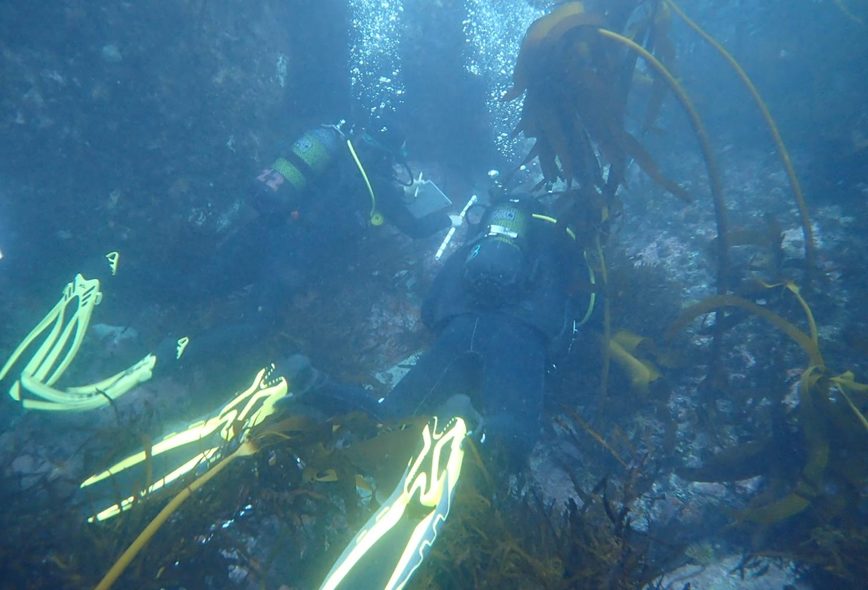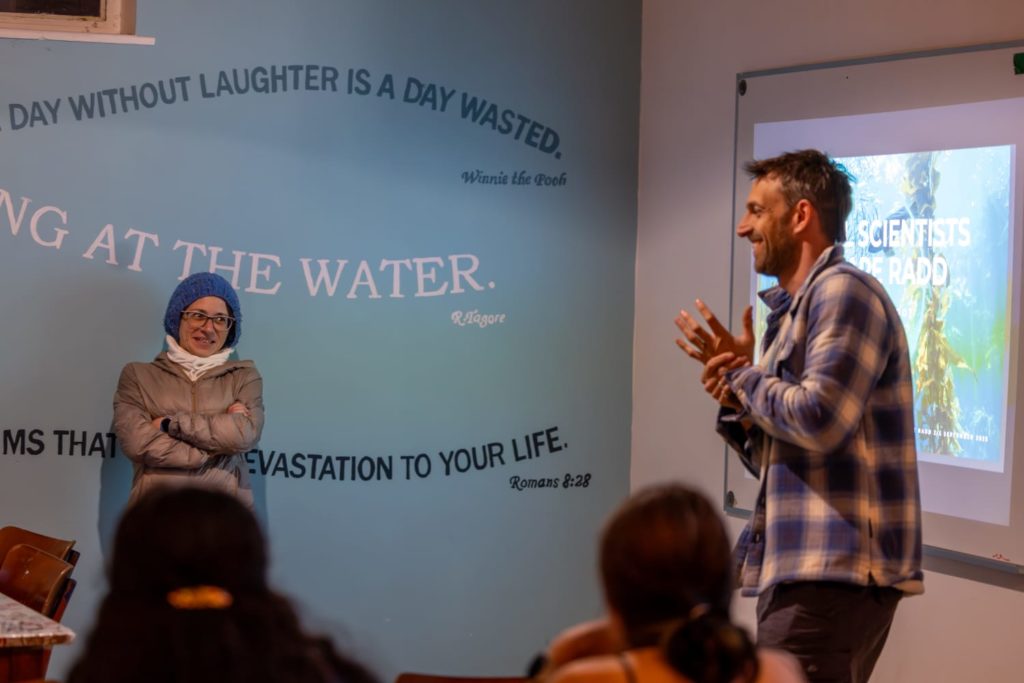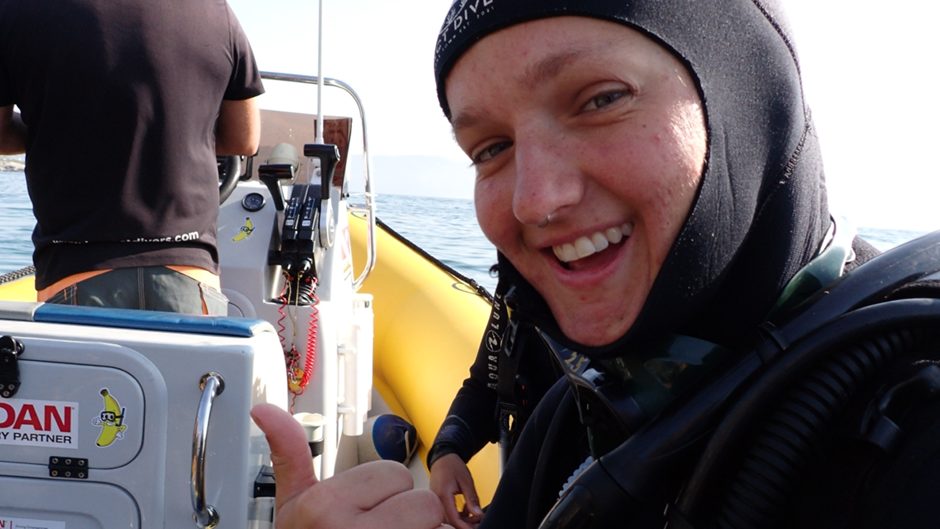My time with Cape RADD was… rad! To say the least. An immersive experience inside one of the worlds’ biodiversity hotspots, False Bay, with a great team of marine scientists.
With this visit being my first time in South Africa, the access to wildlife alone was enough to catch my curiosity. This, being paired with learning from the welcoming and fun team of Cape RADD, made the whole experience a knock-out. Each member of the team (both Cape RADD and Impact Divers) was upbeat and engaging in character. I feel I can speak for others in saying we were extremely well looked after. Especially with such a large group of students!


Reading University Welcome Braai

Learning alongside one another created a buzzing environment to be in. Each day was jam packed with activity and the diversity within the itinerary kept it very interesting. From the different scientific dives such as the nudibranch survey, Fin spotter and PISCO kelp forest monitoring survey to the rocky shore survey, ocean safari to cape point, and talks from experts. There was more than plenty to keep us busy and learning. I learnt a lot about the diversity of marine species in false bay and the techniques used to study marine life. For example, my fish identification improved dramatically, and I am now aware of the planning and attention to detail needed for underwater surveying. I also learnt more about myself and my interests to specialise in marine biology.

From time spent in the water and with the team and fellow students, I reflected upon different societal views of the ocean and the impacts this has on conservation. Before coming out on this trip, I was repeatedly warned by family members and friends that I must be careful in the water. With heavy emphasis on the dangers of sharks and other wildlife. I have generally challenged this throughout my life, finding comfort in the ocean and an overall respect for the wildlife that reside. This trip has solidified my view that the ocean is less something to be feared or avoided and more something to learn from, respect and care for. I feel incredibly lucky to have experienced diving with sharks and sting rays, for example.

The talk from Dr Lucrezi on the importance of social science in marine conservation was very interesting, discussing the relationship between exposure and attitudes to marine life. The effect experience has on care and positive attention to a topic was quite clear on this trip. For example, after diving with sharks, I thought more about shark conservation. After diving in the kelp forests, I have reflected on the effects of MPA’s in conservation of kelp forests. In the UK (where I call home) for example, kelp forests are increasingly threatened by climate change, storms and invasive species1. Therefore, spending time in this environment, emphasised to me the importance of protecting these habitats. Pushing further to think of the different conservation strategies at play in False Bay and how we can learn from this elsewhere!
Overall, my experience on the Marine Science Field Course was amazing. I would love to come again to deepen my knowledge and experience of the underwater world.

Top banana sending us out for the nudibranch survey!
Reference
Earp, H.S., Moore, P.J., Fanshawe, S., Balchin, G., Yesson, C. (2025) UK Kelp Recovery: Barriers and Optimum Conditions. Blue Marine Foundation. Available at: https://www.bluemarinefoundation.com/wp-content/uploads/2025/06/Kelp-Recovery-Report.pdf. (Accessed 25.09.2025).
0 Comments